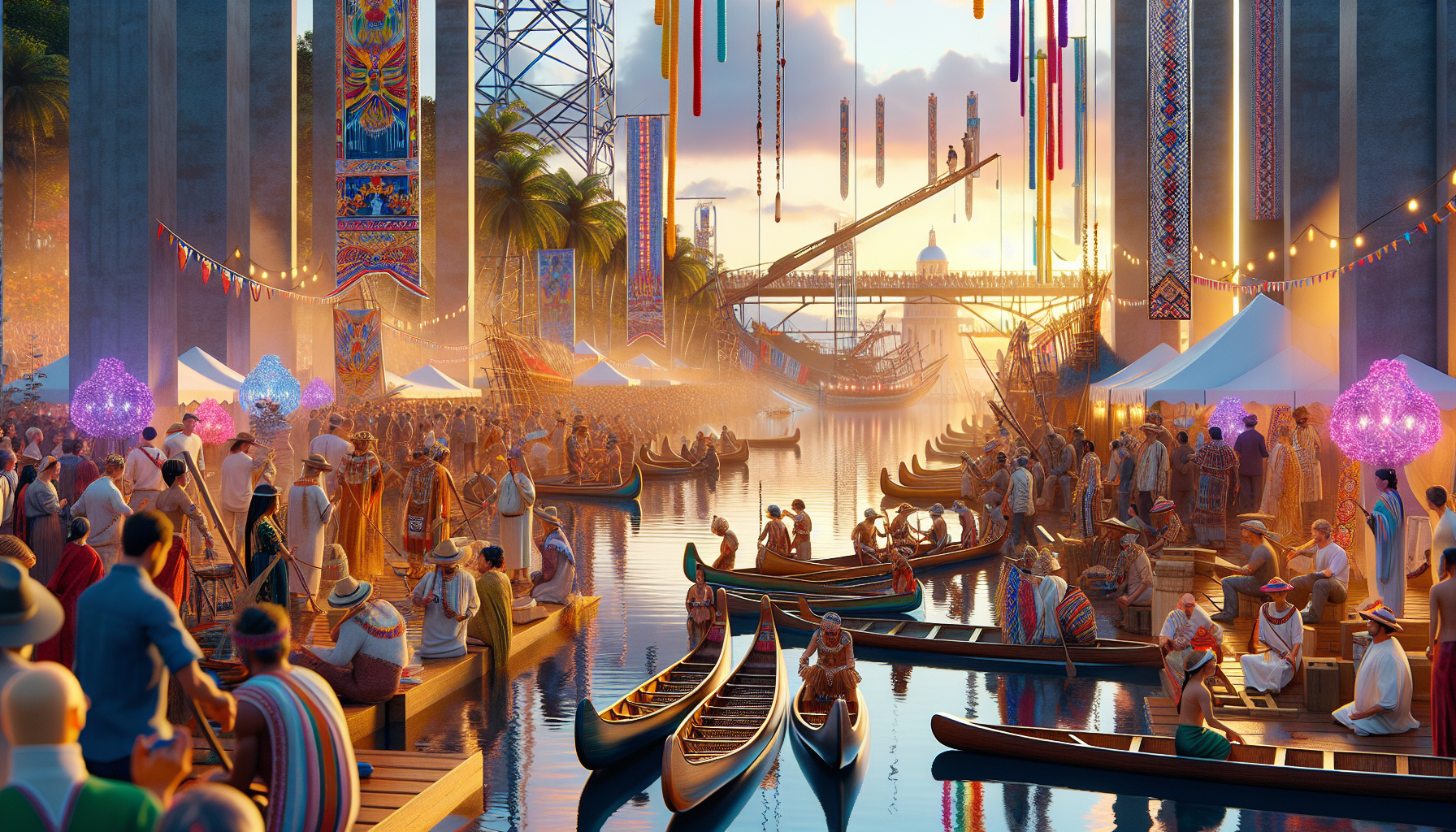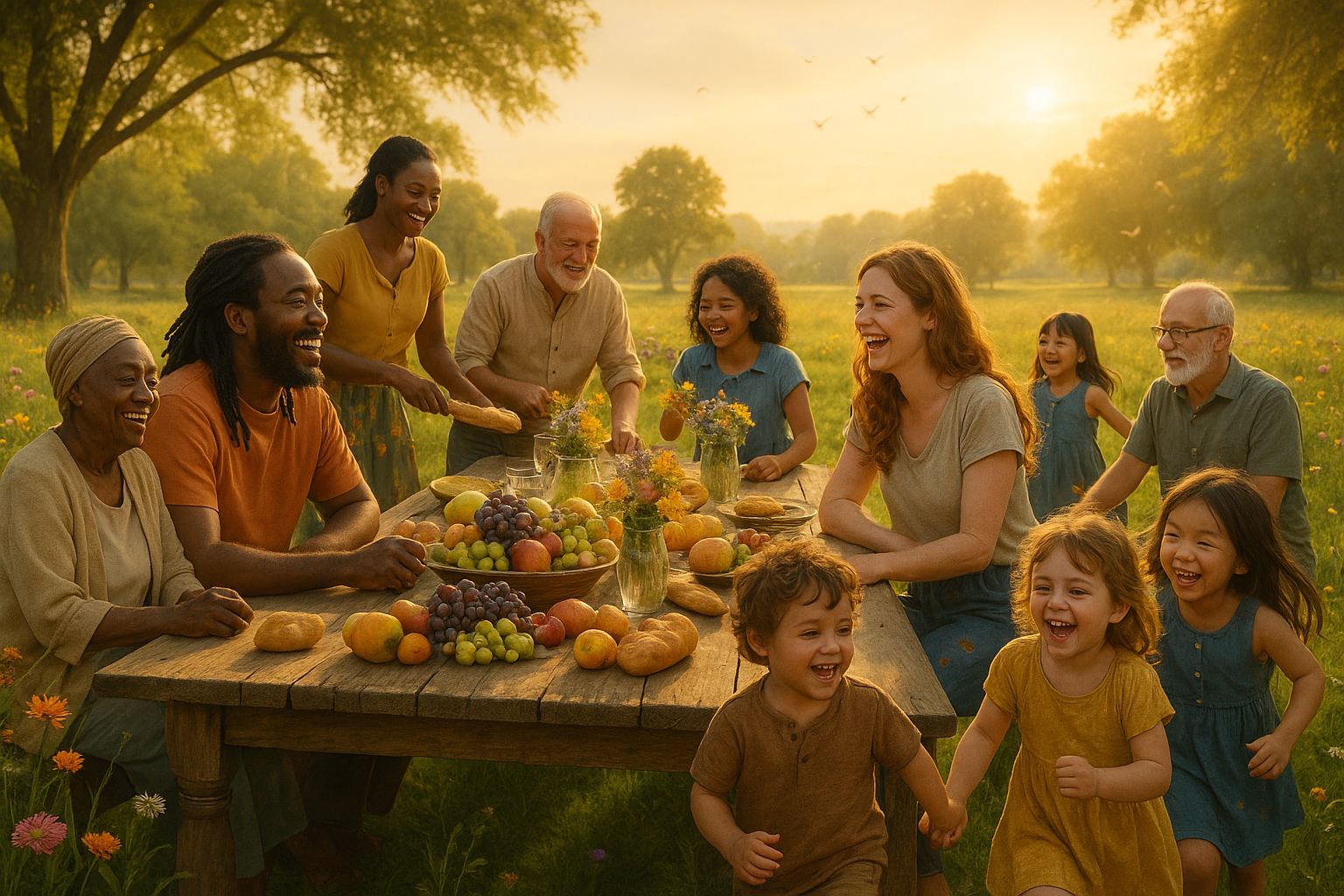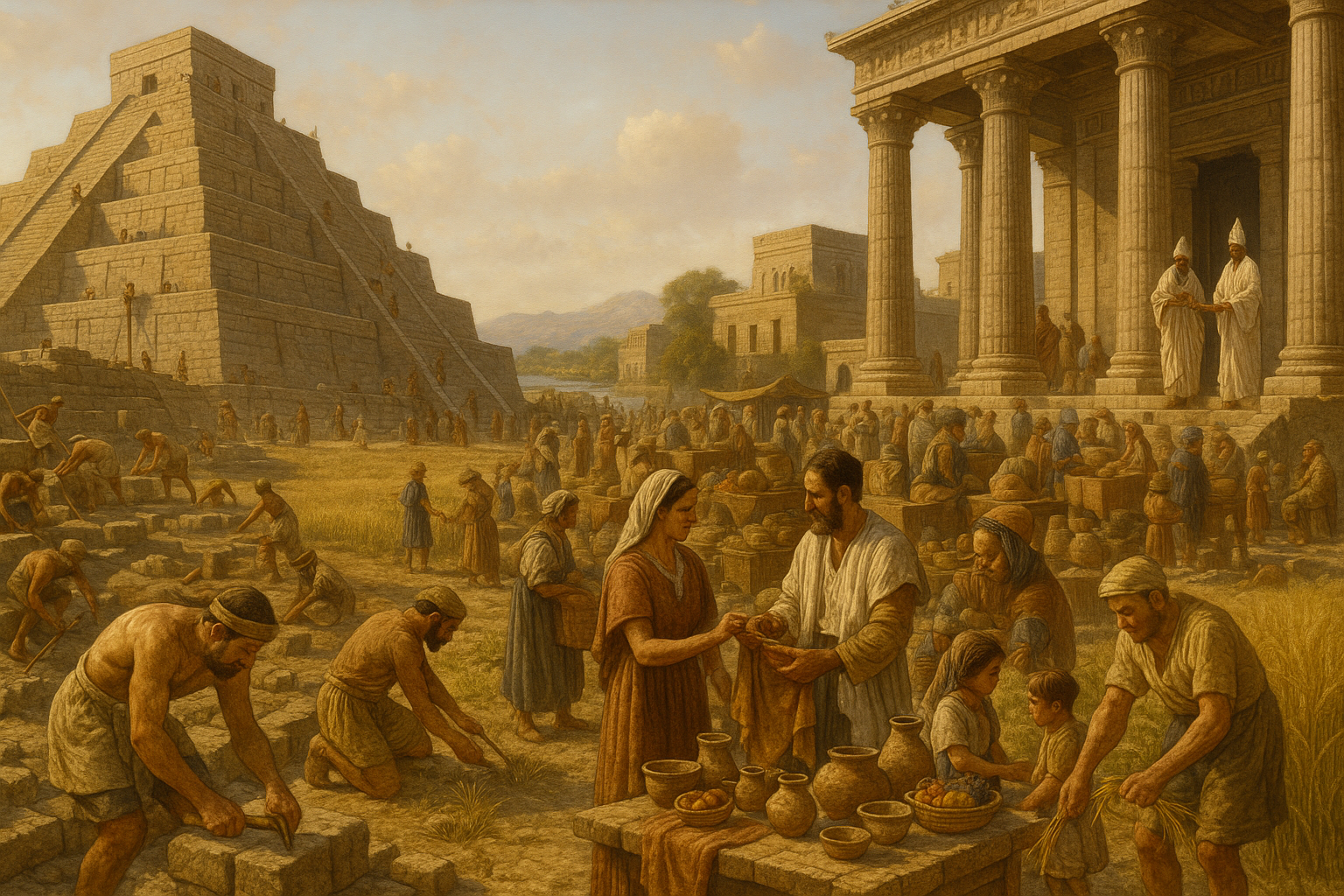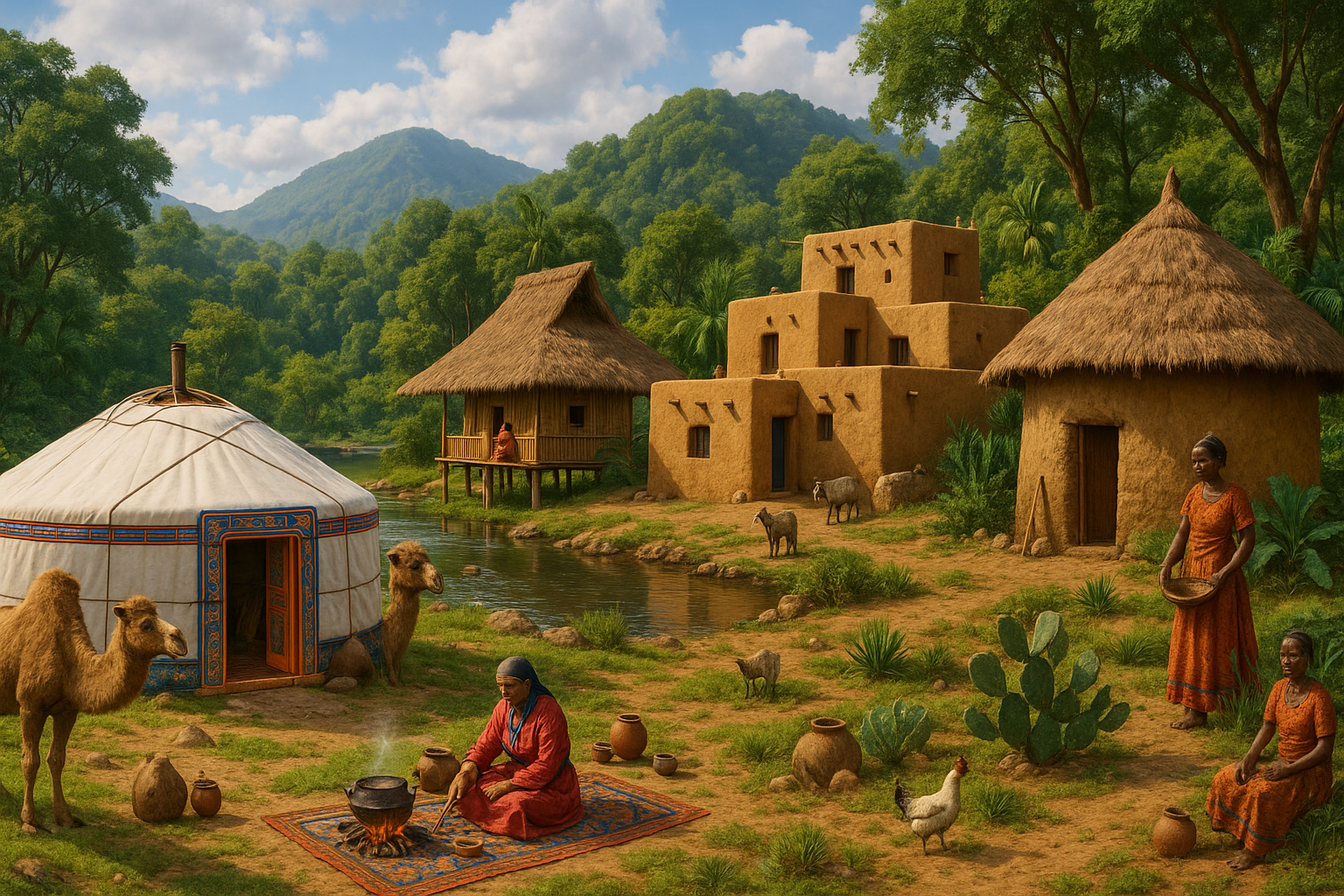Embarking on a cultural voyage can be as thrilling as discovering uncharted territories. In the heart of vibrant festivals, a unique revival is taking place that connects us with ancient traditions and the rich tapestry of human history. This journey isn’t just about witnessing a spectacle; it’s about delving into the profound legacy of ancestral canoes, vessels that carry the stories and spirits of those who came before us.
At these festivals, the art of canoe craftsmanship is not merely an exhibit; it’s a celebration of heritage and community. Artisans and enthusiasts from around the globe gather to showcase their skills and dedication to preserving this time-honored craft. The revival of ancestral canoes is more than a nod to history—it’s a living, breathing testament to the resilience and ingenuity of indigenous cultures. Each canoe, intricately carved and lovingly restored, serves as a tangible link to our shared past and a bridge to future generations.
This exploration offers more than just a visual feast; it invites participants to immerse themselves in workshops, storytelling sessions, and cultural exchanges. Through these interactive experiences, the festivals foster a deeper understanding and appreciation of diverse cultural narratives, highlighting the universal themes of exploration, tradition, and community. As the rhythmic strokes of paddles echo through the waters, the festivals become a confluence of culture, history, and human connection, inviting all to partake in this extraordinary journey. 🌊
The Historical Significance of Ancestral Canoes
The ancestral canoe holds a significant place in the history and culture of many indigenous communities worldwide. These vessels are not merely modes of transportation but symbols of craftsmanship, knowledge, and survival. Canoes were essential for trade, fishing, and exploration, allowing communities to traverse vast bodies of water. They are intricately tied to the identity of the people who crafted them, reflecting their skills and the resources available in their environments.
Over time, the techniques and designs of these canoes have evolved, but the core principles remain rooted in tradition. The revival of ancestral canoes at cultural festivals is an effort to preserve these age-old practices and pass them on to future generations. By engaging in this revival, communities pay homage to their ancestors and ensure that the skills and knowledge associated with canoe-building are not lost.
The Craftsmanship Behind Canoe Building
The art of canoe building is a meticulous process that requires a deep understanding of natural materials and traditional techniques. Builders often spend years mastering the craft, learning from elders and artisans who have passed down their knowledge through generations. This process involves selecting the right type of wood, usually lightweight and durable, such as cedar or birch.
The construction of a canoe is a community endeavor. It often involves collaboration among various members, each contributing their expertise. The process is not only about creating a functional vessel but also about instilling cultural values and communal bonds. The design of the canoe varies among cultures, with each community adding its unique touches that reflect its environment and needs.
The dedication and precision involved in crafting these canoes are celebrated at festivals, where artisans demonstrate their skills and educate attendees on the intricacies of the process. Through these demonstrations, festival-goers gain insight into the labor and love that go into each canoe, fostering a deeper connection with the cultural heritage they represent.
The Role of Festivals in Canoe Revival
Cultural festivals play a crucial role in the revival and preservation of ancestral canoes. These events serve as platforms for education, celebration, and cultural exchange, bringing together communities and individuals who share a passion for preserving their heritage. Festivals offer a unique opportunity to showcase the beauty and significance of traditional canoes, drawing attention to their importance in today’s world.
At these festivals, attendees can witness canoe races, traditional dances, and storytelling sessions that highlight the cultural narratives associated with these vessels. These activities are not only entertaining but also educational, providing a deeper understanding of the historical context and cultural significance of canoes. By participating in these festivals, younger generations are encouraged to learn and engage with their heritage, ensuring its continuation.
Interactive Workshops and Demonstrations
One of the most engaging aspects of these cultural festivals is the interactive workshops and demonstrations offered to attendees. These sessions are designed to be hands-on, allowing participants to experience the process of canoe building firsthand. Under the guidance of skilled artisans, individuals can try their hand at various stages of the construction process, from selecting materials to shaping and assembling the canoe.
The workshops provide valuable learning opportunities, especially for younger generations who may be unfamiliar with these traditional practices. By actively participating, they gain a deeper appreciation for the skill and dedication required in canoe building. The hands-on experience also helps to demystify the process, making it more accessible and inspiring future generations to take up the craft.
These workshops are not only educational but also serve as a means of cultural preservation. They ensure that the techniques and knowledge required for canoe building are not only documented but also actively practiced and passed down. This approach helps to maintain the relevance and vitality of these traditions in a modern context.
Cultural Narratives and Storytelling
Storytelling is an integral part of cultural festivals that focus on ancestral canoes. These narratives provide context and meaning to the canoes, linking them to the history, beliefs, and values of the communities that created them. Through stories, attendees learn about the myths and legends that have been associated with these vessels for generations.
These storytelling sessions are often led by elders or cultural leaders who possess a wealth of knowledge about their community’s history. Their tales provide insight into the significance of canoes beyond their practical use, highlighting their role in spiritual and ceremonial practices. These narratives are a powerful way to convey the cultural importance of canoes and inspire pride in one’s heritage.
By integrating storytelling into the festivals, organizers ensure that the cultural narratives surrounding ancestral canoes are preserved and shared. This practice not only educates but also entertains, capturing the imagination of attendees and fostering a deeper connection to the cultural traditions being celebrated.
Economic Impact and Community Development
The revival of ancestral canoes at cultural festivals also has significant economic implications for the communities involved. These events attract tourists and visitors, providing a boost to local economies through increased demand for accommodation, food, and other services. The festivals create opportunities for local artisans and vendors to showcase and sell their crafts, generating income and supporting livelihoods.
The economic benefits extend beyond the duration of the festival. The increased visibility and interest in ancestral canoes can lead to further opportunities for community development, such as tourism initiatives and cultural workshops. These activities can provide sustainable income sources, helping to improve the quality of life for community members.
The festivals also promote community pride and cohesion, as residents come together to organize and participate in the events. This collaborative spirit strengthens social bonds and fosters a sense of ownership and pride in one’s cultural heritage. By supporting these festivals, communities can leverage their cultural assets to promote development and resilience.
Examples of Successful Canoe Festivals
| Festival Name | Location | Highlights |
|---|---|---|
| Polynesian Cultural Festival | Hawaii, USA | Canoe races, traditional dances, storytelling |
| Indigenous Peoples’ Day Festival | British Columbia, Canada | Workshops, artisan markets, cultural performances |
| Marae Canoe Festival | New Zealand | Interactive canoe-building workshops, cultural exchanges |
The festivals listed above are just a few examples of how cultural events centered around ancestral canoes are thriving and making a positive impact on their communities. These festivals are a testament to the enduring relevance and importance of canoe traditions in contemporary society.

Conclusion
The revival of ancestral canoes through cultural festivals is not just a tribute to the past but a celebration of living traditions. These events serve as vibrant platforms for preserving and promoting the rich heritage of canoe-building, offering a blend of education, entertainment, and economic opportunity. By showcasing the meticulous craftsmanship and cultural narratives behind these vessels, festivals foster a deeper appreciation for the skills and stories that have been passed down through generations.
Moreover, these gatherings are pivotal in engaging younger generations, ensuring that they inherit the knowledge and pride associated with their cultural roots. Through interactive workshops and storytelling sessions, participants gain firsthand experience and insight into the traditions that have shaped their communities. These immersive activities not only preserve the knowledge of canoe-building but also inspire a new generation to keep the craft alive.
Economic benefits further underscore the significance of these festivals. They attract tourists, stimulate local economies, and provide artisans with platforms to showcase their talents. This economic influx supports community development, offering sustainable income sources and fostering resilience.
In essence, cultural festivals centered around ancestral canoes encapsulate a powerful blend of tradition, education, and community empowerment. They reinforce cultural identity while forging bonds between past and present, ensuring that the legacy of these magnificent vessels continues to sail into the future. 🌊🚣♂️
Toni Santos is a visual storyteller and experimental artisan whose work explores the strange frontiers where science meets art. Fascinated by the forgotten, the obscure, and the wonderfully absurd, Toni brings bizarre scientific experiments to life through provocative visual narratives and handcrafted creations that blur the line between curiosity and discovery.
His journey is rooted in a passion for the eccentric side of science — from electric shocks on cadavers to botany in hostile environments, from Victorian medical oddities to animal behavior gone rogue. Each project Toni undertakes sheds light on real (and sometimes questionable) scientific ventures that push the boundaries of human understanding.
With a background in visual design and hands-on craftsmanship, Toni blends artistic precision with conceptual boldness. His creations aren’t just decorative — they provoke, disturb, and invite the viewer to reconsider what counts as science, progress, or even sanity. Often inspired by true experiments — like galvanic resurrection, psychological endurance tests, or 19th-century pseudo-science rituals — Toni’s work reanimates these bizarre chapters of history with aesthetic intrigue and critical reflection.
As the creative force behind Vizovex, Toni invites you to explore a world where the strange becomes symbolic, the grotesque becomes beautiful, and every experiment tells a story worth unearthing.
His work pays tribute to:
The brilliant madness of forgotten experiments
The symbolic power of science at the edge of reason
The beauty in questioning what we think we know
Whether you’re a curious mind, a lover of scientific history, or simply drawn to the uncanny, Toni welcomes you to explore a realm where aesthetics and absurdity collide — one experiment, one mystery, one creation at a time.





